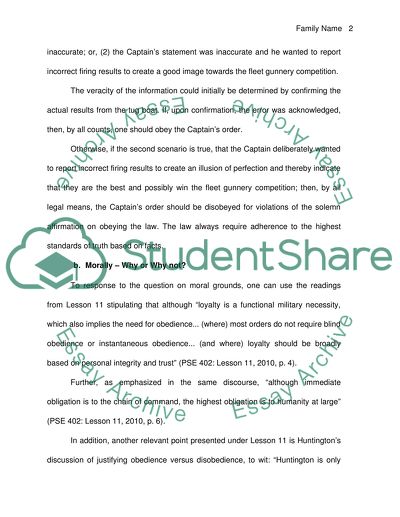Cite this document
(“Water Weapons Officer Assignment Example | Topics and Well Written Essays - 2750 words”, n.d.)
Retrieved from https://studentshare.org/professional/1428269-professionalism
Retrieved from https://studentshare.org/professional/1428269-professionalism
(Water Weapons Officer Assignment Example | Topics and Well Written Essays - 2750 Words)
https://studentshare.org/professional/1428269-professionalism.
https://studentshare.org/professional/1428269-professionalism.
“Water Weapons Officer Assignment Example | Topics and Well Written Essays - 2750 Words”, n.d. https://studentshare.org/professional/1428269-professionalism.


